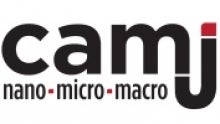
The establishment of Centre for Advanced Materials Joining (CAMJ) is the culmination of about 40 years of welding and joining work at the University of Waterloo. Joining is a fundamental requirement in manufacturing of industrial products. It includes welding, brazing, soldering, adhesive bonding and other technologies. In addition to the well-recognized role of joining in assembly of automobiles, bridges, buildings, process plants and pipelines, it is also crucial for product sectors such as microelectronics and medical devices. Joining processes are also essential tools in repair and maintenance.
R&D in joining is now recognized as a uniquely multidisciplinary endeavour. It involves many basic sciences and engineering disciplines, e.g., arc physics (arc welding processes), laser physics (laser welding), electricity and magnetism (arc or resistance welding), heat transfer, fluid mechanics (flow of gases for shielding, liquid metals or polymers in weld pools), chemistry and materials science/metallurgy, automation and process control, engineering mechanics (design of solid state joining processes and to optimize joint design and minimize risk of fatigue or fracture), nondestructive evaluation processes to inspect welds and joints (x-ray, ultrasonic testing, etc.)
Therefore, highly qualified joining/welding engineers draw on all of the fundamental knowledge incorporated in undergraduate and graduate engineering programs. Joining, especially welding, often is viewed as "old" technology. In fact, joining technology is advancing very rapidly, and is crucial to future global competitiveness. Today, the fastest growing segment of the joining technology field is microjoining. This segment got its start in a largely empirical way, providing electrical interconnections and packaging for microelectronics. Today, it is vital to many additional areas, including sensors and transducers, medical devices, optoelectronics, etc, and has given rise to a whole host of new scientific questions requiring research and development.

- carry out fundamental research related to welding, joining, and industrially-supported applications
- achieve collaboration and coordination in joining research
- enhance the visibility and credibility of joining research in interactions with external collaborators, funding agencies and industrial users of joining
- develop, manage, maintain, and coordinate the use of laboratory facilities and equipment required for joining-related research
- communicate with the public, potential students and researchers, governmental and industrial planners, granting agencies and industrial users regarding the importance of joining technology and research, and as to the availability of joining expertise within or through the CAMJ
- ensure that uWaterloo courses meet the needs of the industry for appropriate training of highly qualified engineers and researchers

Research Areas
- Friction stir welding and processing
- Microwelding
- Nanojoining
- Smart materials
- Welding of Advanced High Strength Steel (AHSS)
- Welding of magnesium
- Wire bonding